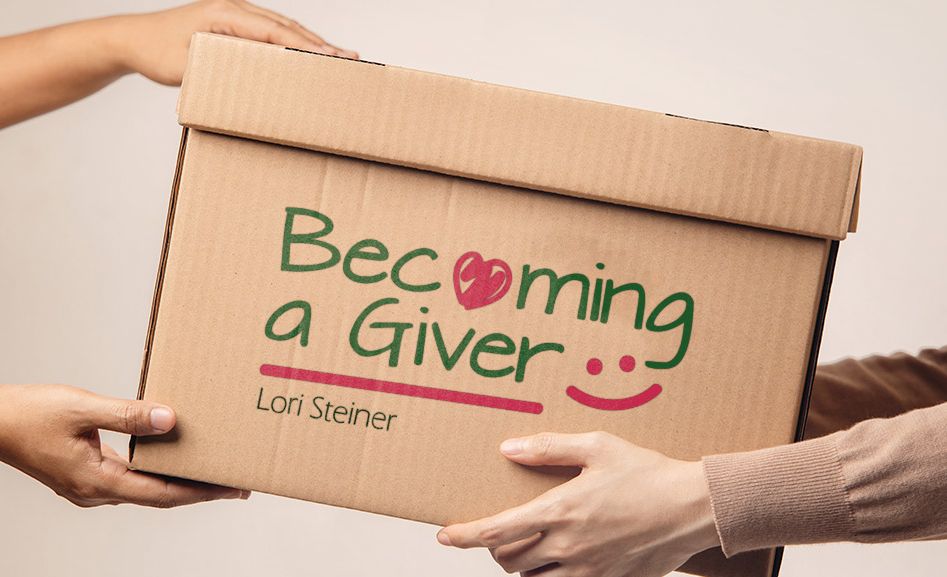
Even More Questions
As we go higher up the spiritual ladder, our setbacks of today are actually higher than our successes of yesterday...

We continue with the inquiries of people who strive for emotional and spiritual improvement.
* * *
Question Number Four: What happens if I accidentally fall into an explosive anger tantrum? Have I lost everything I’ve worked so hard for?
Allow me to preface my answer with the following principle:
As we go higher up the spiritual ladder, our setbacks of today are actually higher than our successes of yesterday.
Let me explain: Think back to Chapter One. Suppose you began this book as a level three, and now you’ve worked your way up to a level six. Something or someone irritates you, and you react like a level five. Even though you’ve had a temporary “fall” from level six down to level five, from an emotional and spiritual standpoint you’re far beyond your incoming level of three.
Since we’re human, and we all fall periodically, we must learn how to take a fall without getting hurt. The first thing a good gymnastics instructor teaches students is how to take a fall. A paratrooper spends days learning how to fall before he ever goes up in a plane. An experienced investments broker must know how to redirect investments when the stock, bond, or commodities markets fall. As we’ve pointed out several times previously, what holds true in the physical world holds true in the metaphysical world. If we must be prepared for a physical fall, we should certainly know how to handle an emotional or spiritual fall.
Basically, we’re all spiritual babies, especially when compared to our potential. Babies can’t possibly learn how to walk without falling occasionally. But, remembering the benefits of a fall is the best cushion for a fall.
This is an appropriate time to review the five good reasons why we sometimes fall or fail, which we learned previously in Chapter Eight:
The Reasons Why We Sometimes Fall
1. Only doers fall. If you don’t climb mountains, you don’t fall on the rocks, simple as that! People who drive sometimes get traffic tickets. People who don’t drive don’t ever make wrong turns. Wouldn’t it be ridiculous if a seventy-year-old person bragged that he never committed a traffic violation if he never drove a car? The first consolation of a fall is the knowledge that you are a doer.
2. A fall teaches, and usually triggers a stronger second effort. Periodic falls are a safeguard against complacency and arrogance. When we fall, we realize that we need to try harder the next time. Frequently, a second effort is far superior to even a best first effort. So, if you fall, don’t be disappointed; just “get back in the game.” If you pick yourself up, then your fall is only a temporary setback – don’t forget, as long as you’re alive, the game’s not over!
3. Failure brings us closer to God. If we were constantly successful, we’d probably walk around with our noses in the air. Then, we’d be ugly, Heaven forbid, because few things are uglier than arrogance. The Almighty wants His children close to Him. After a setback, we pray a lot harder and earnestly seek Divine assistance for our next effort. If our lives were a perfect string of non-stop successes, we certainly wouldn’t pray from the bottom of our hearts.
4. Experience is life’s best teacher. The experience of a fall drives a lesson home immediately. Usually, we are slow in internalizing and implementing what we learn. When we fall, we have a golden opportunity to better ourselves immediately.
5. Small-scale failure assures large-scale success. Where would an actor prefer to forget a line, in rehearsal or on stage? A failure in rehearsal often assures a better performance on stage, since the actor makes a special effort to polish the rough edges of his or her performance. Sometimes, small failures are none other than preparations for large successes.
A New Beginning
Now, let’s return to the heart of the question that utterly terrifies most people.[1] You ask yourself, “What happens if I fall?” If you were to fall off a horse, your riding instructor would tell you three things:
a. Pick yourself up.
b. Dust yourself off.
c. Get back on the horse, and make a new start.
Dear friend, I couldn’t improve on the above advice. So, you’ve fallen into a relapse of anger? Big deal! How many times have you succeeded in overcoming anger lately? No, you haven’t lost everything. Make a new start, and apply everything you’ve learned. A new beginning is spiritually and physically beneficial to your life. Try making the following declaration:
So what, I didn’t succeed? I lost my temper? From this moment on, I hereby declare a new beginning! Anger is no longer a boarder in my spiritual guesthouse. I’m now remodeling my life. The past does not concern me! I’m about to make a fresh start doing the best I can.
Declaring a new beginning is synonymous to spiritual rebirth. The spirit influences the body. So, when the spirit declares a fresh start, the body becomes rejuvenated! By removing the focus from your setbacks and disappointments, you avoid sadness and depression. By declaring a new start, you destroy sadness and depression. The cheerfulness of a fresh spiritual start will keep your face, body, and complexion looking younger than any spa or cosmetics will. A fresh start is the secret of staying young.
Let’s take a day-to-day example. Suppose we’re caught off guard, and we lose our temper with someone close to us. Spiritually, we’ve been knocked down, but the game’s not over. If we suck in our pride (remember Chapter Two – arrogance is the number one cause of anger), give our loved one a thoughtful little gift and a sincere apology, we turn our setback into a major victory. We rejuvenate ourselves, and our relationships with others. A fresh start keeps us happy, youthful, and optimistic.
To be continued…
(The Trail to Tranquility is available in the Breslev Store.)
* * *
[1] The fear of failure, like other fears, paralyzes people. Once we shed our fear of failure, we can “un-paralyze”, and initiate a new and better effort. My old high school coach taught me a cardinal principle in wrestling that equally applies to any situation in life: “You don’t lose the match by being thrown to the mat; the faster you’re back on your feet, the better your chances of winning!”













Tell us what you think!
Thank you for your comment!
It will be published after approval by the Editor.